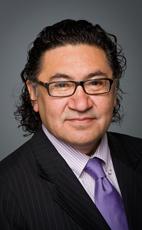Mr. Speaker, I am sure you will agree that respect in the House must be a priority for all members, and that includes the Prime Minister. During question period, the Prime Minister said that adopting the UN Declaration on the Rights of Indigenous Peoples would be tantamount to imposing something on indigenous peoples in this country.
Will the Prime Minister rise to withdraw that insulting statement that suggests that there is anything wrong with simply respecting indigenous human rights in this country?
We are all bound by the rule of law in this chamber. To even suggest that the rights of indigenous peoples are subject to debate is troublesome, especially coming from the Prime Minister of Canada.

